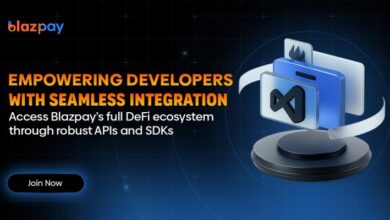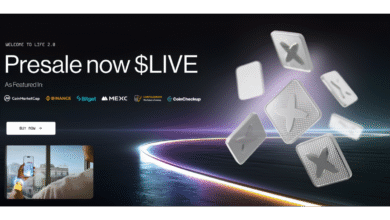What Risks Does Crypto Payroll Present for DAOs and Startups?

What is the significance of decentralized oracles in the crypto payroll landscape?
Decentralized oracles are crucial for providing off-chain data to blockchain ecosystems, enabling smart contracts to access real-world information. However, with this access comes a range of risks that could adversely impact crypto assets.
What potential issues arise from oracle manipulation attacks?
Oracle manipulation attacks are among the most pressing risks. If malicious actors leverage flaws in oracle mechanics, they can introduce false data into smart contracts. This has the potential to disrupt asset valuations and lead to unintended consequences. An infamous case occurred in 2020, where a market manipulation of the DAI/USDC pair on Coinbase resulted in nearly $89 million in erroneous liquidations on Compound Finance, which depended on a single price feed.
How does centralization affect the integrity of decentralized oracles?
Despite being marketed as decentralized, many oracle systems rely on a handful of data providers. This centralization creates vulnerabilities, as it introduces points of failure that can be exploited, thus eroding the alleged benefits of decentralization. A major oracle provider, like Chainlink, facing security breaches could have far-reaching implications for the platforms utilizing it.
What technical challenges do oracles face in the crypto payroll ecosystem?
Oracles are susceptible to issues like latency and outages, which can result in outdated or missing data, causing disruption in decentralized finance (DeFi) operations. The interaction between oracles and smart contracts can also pose risks, as bugs or vulnerabilities in either component can yield financial losses.
What legal implications surround the use of decentralized oracles?
The legal landscape governing decentralized oracles remains nascent. A smart contract executing based on faulty oracle data often lacks established legal recourse, especially in regions with uncertain crypto regulations. As DeFi’s total value locked increases, oracle operators may face heightened scrutiny, which could affect their reliability.
How are Streamex and Chainlink poised to innovate crypto payroll solutions for DAOs?
The collaboration between Streamex and Chainlink will bring forth innovative crypto payroll solutions, specifically tailored for small and medium enterprises (SMEs) and decentralized autonomous organizations (DAOs). By integrating Chainlink’s oracle technology with Streamex’s gold-backed stablecoin (GLDY), several notable advancements are expected.
What unique features will the new crypto payroll solutions offer?
A major innovation will be the ability to provide payroll payments in a stablecoin that is backed by tangible assets. With Streamex’s GLDY, bolstered by Chainlink’s Proof of Reserve, SMEs and DAOs can compensate employees with a crypto asset whose backing is verified in real-time, significantly mitigating volatility risks.
How does cross-chain compatibility enhance crypto payroll?
Chainlink’s Cross-Chain Interoperability Protocol (CCIP) facilitates the movement of GLDY across various blockchain networks, such as Base and Solana. This cross-chain interoperability means that payroll systems can be executed across varied blockchain ecosystems, broadening accessibility and liquidity for employees paid in crypto.
What advantages does Chainlink’s technology provide for payroll transparency?
The incorporation of Chainlink’s oracles ensures tamper-proof price feeds and on-chain verification of gold reserves that back GLDY. This increased transparency builds trust among both employers and employees regarding the security and value of crypto payroll funds.
How do smart contracts improve payroll automation?
With Chainlink’s dependable real-time data feeds, smart contracts can automatically execute payroll payments based on accurate market prices. This automation enhances efficiency and minimizes operational risks for SMEs and DAOs, making crypto payroll systems more feasible.
Can tokenized commodities compete with traditional banking systems?
Tokenized commodities like GLDY have the potential to rival traditional banking systems regarding liquidity and trust by utilizing blockchain technology and regulatory compliance to provide substantial benefits over conventional financial services.
How does GLDY enhance liquidity in comparison to traditional assets?
Tokenized commodities such as GLDY offer superior liquidity compared to traditional physical assets. By converting physical gold into digital tokens, GLDY allows for rapid, cross-chain transactions and enables programmable financial functions like collateralization, lending, and staking. This liquidity is facilitated by partnerships with blockchain oracle providers like Chainlink that deliver proof of reserves and price feeds in real-time.
What builds trust in tokenized commodities like GLDY?
The trustworthiness of tokenized commodities is enhanced by regulatory compliance and transparency. GLDY is governed by regulated frameworks and employs third-party custody with insured vaults and regular audits, which are essential for institutional investor confidence. The collaboration with Chainlink for Proof of Reserve and immutable data feeds offers verifiable backing for the tokens, reducing risks of fraud or misrepresentation.
How do tokenized commodities stack up against traditional banking offerings?
While traditional banks provide liquidity through fiat currencies and credit systems backed by regulatory mechanisms, tokenized commodities seek to replicate and expand upon these advantages. Nevertheless, obstacles such as varying levels of adoption and the challenges of integrating blockchain with legacy systems could hamper their immediate scalability and acceptance compared to traditional financial products.
What role does Chainlink play in enhancing regulatory compliance?
The integration of Chainlink’s CCIP will considerably bolster the regulatory compliance of gold-backed stablecoins in Europe. By allowing smooth, secure, and transparent cross-chain operations, Chainlink’s technology aligns with the EU’s regulatory frameworks, such as the Markets in Crypto-Assets (MiCA) regulation.
How does cross-chain interoperability facilitate compliance?
Chainlink’s CCIP permits gold-backed stablecoins like GLDY to operate across multiple blockchains while adhering to regulatory standards. This interoperability supports institutional requirements for data integrity, transparency, and adherence to regulations across jurisdictions.
How does Proof of Reserve enhance transparency and trust?
Chainlink’s Proof of Reserve technology offers real-time, on-chain verification of the gold reserves backing stablecoins, reducing reliance on manual audits. This transparency is vital for regulators to ensure that stablecoins are fully backed and not susceptible to manipulation or fraud.
What are the future implications for crypto payroll targeting SMEs and DAOs?
The outlook for crypto payroll targeting SMEs and DAOs is promising, with several trends likely shaping its development. As blockchain technology adoption grows, businesses will increasingly seek crypto-friendly payroll platforms that integrate seamlessly with their existing infrastructures.
What is the expected trend in demand for stablecoin payments?
As companies recognize the benefits of stablecoin payments, the demand for crypto payroll solutions will surge. This trend will likely give rise to specialized crypto payroll APIs and platforms that cater to the unique needs of businesses in the digital currency sector.
How will compliance enhance crypto payroll solutions?
With advanced technologies like Chainlink’s CCIP, businesses will be better prepared to navigate the regulatory landscape. This will encourage broader adoption of crypto payroll solutions, as companies can ensure compliance while enjoying the advantages of digital currencies.
How will global payments be transformed by stablecoin payroll?
The ability to make instant stablecoin payments will revolutionize international money transfers and cross-border payroll. This will enable businesses to operate more effectively in a globalized economy, reducing costs and improving employee satisfaction.
In summary, the partnership between Streamex and Chainlink is set to redefine crypto payroll solutions for SMEs and DAOs. By leveraging gold-backed stablecoins and advanced oracle technology, this alliance addresses key challenges in the crypto payroll landscape and paves the way for a more transparent, efficient, and compliant future.






